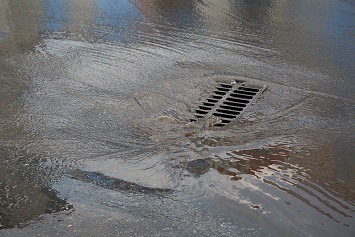An influential state Supreme Court recently ruled that stormwater rules can be applied retroactively, that is, to projects that were approved before the rules were in effect. Can this happen to your project? Let’s take a look.
 |
Here’s what happened recently to developers in Washington.
“Vested Rights” for Developers
Washington has a vested rights doctrine that entitles developers to have their land development proposals processed under the regulations that are in effect when the complete permit application is filed. Under this doctrine, developers supposedly do not have to worry about subsequent changes in zoning or other land use regulations—except now for changes in stormwater regulations.
Ecology’s MS4 Permits
In 2013, the Washington Department of Ecology (Ecology) issued the third iteration of its municipal separate storm sewer systems (MS4) permit for large and medium systems, known as the 2013 Phase I Permit. This permit is part of the federal National Pollutant Discharge Elimination System (NPDES) program.
Note: Washington’s 2013 Phase II Permits apply to certain small MS4s. Ecology offers a Western Washington Phase II Municipal Stormwater Permit and an Eastern Washington Phase II Municipal Stormwater Permit.
The 2013 Phase I Permit required large and medium MS4s to develop local stormwater management programs by June 30, 2015. The programs could include ordinances that would apply to all development projects started after July 1, 2015, and to all projects approved before July 1, 2015, that have not started construction by June 30, 2020.
Also important is that the permit includes some onerous mandatory low impact development (LID) requirements.
Is Stormwater Control a Land Use?
A number of permittees appealed the applicability portion of the 2013 permit. They claimed that it violated the state’s vested rights doctrine because it compelled them to retroactively apply new stormwater regulations to completed development applications. Ecology’s Pollution Control Hearings Board held that the vested rights doctrine does not apply to stormwater regulations that permittees must implement under the NPDES program. The Board claimed, in part, that stormwater regulations address water quality, not land use. In addition, the Board ruled that the state legislature acknowledged the use of mandatory LID techniques in the 2013 permits when it directed Ecology to implement the use of LID in the 2013 Phase II Permit.
The Washington Court of Appeals reversed the Board’s decision and said that vested rights doctrine applies to stormwater regulations because they are land use control ordinances.
State Supremes Reverse the Reversal
In a blow for developers, the Washington State Supreme Court reversed the appeals court ruling and reinstated the Board’s order. The Court said that state legislative history and the Supreme Court’s own precedent demonstrate that the vesting statutes were intended to restrict municipal discretion with respect to local zoning and land use ordinances. Since state and federal law direct the permittees to implement the stormwater regulations, the regulations are not the sort of local municipal land use and zoning ordinances the legislature was concerned with. The Court said that the state legislature’s actions with regard to implementation of Ecology’s LID techniques make it clear that the vesting statutes do not preclude compliance with the 2013 Phase I Permit. The legislature had amended state stormwater laws acknowledging the requirements and timelines for Ecology’s implementation of LID techniques in the 2013 permits.
Key Takeaway for All EHS Managers
The stated intent of the Trump administration is to have the states be the primary regulators and enforcers of environmental laws. This makes it even more critical to be aware of your state’s permitting regulations. Since there will be little or no guidance from the feds, it will also make state regulators even more likely to be influenced by what other states are up to. That’s why rulings out of states such as Washington could be important to the regulated community in other states. They may look appealing to your state environmental agency.
Make sure that you are in touch with your state environmental agency and be aware of when permits and regulations are going to be revised. You need to comment on pending state actions and make sure that your voice is heard.
Tune in to tomorrow’s Advisor to see what happened to one company that ran afoul of its stormwater obligations.
